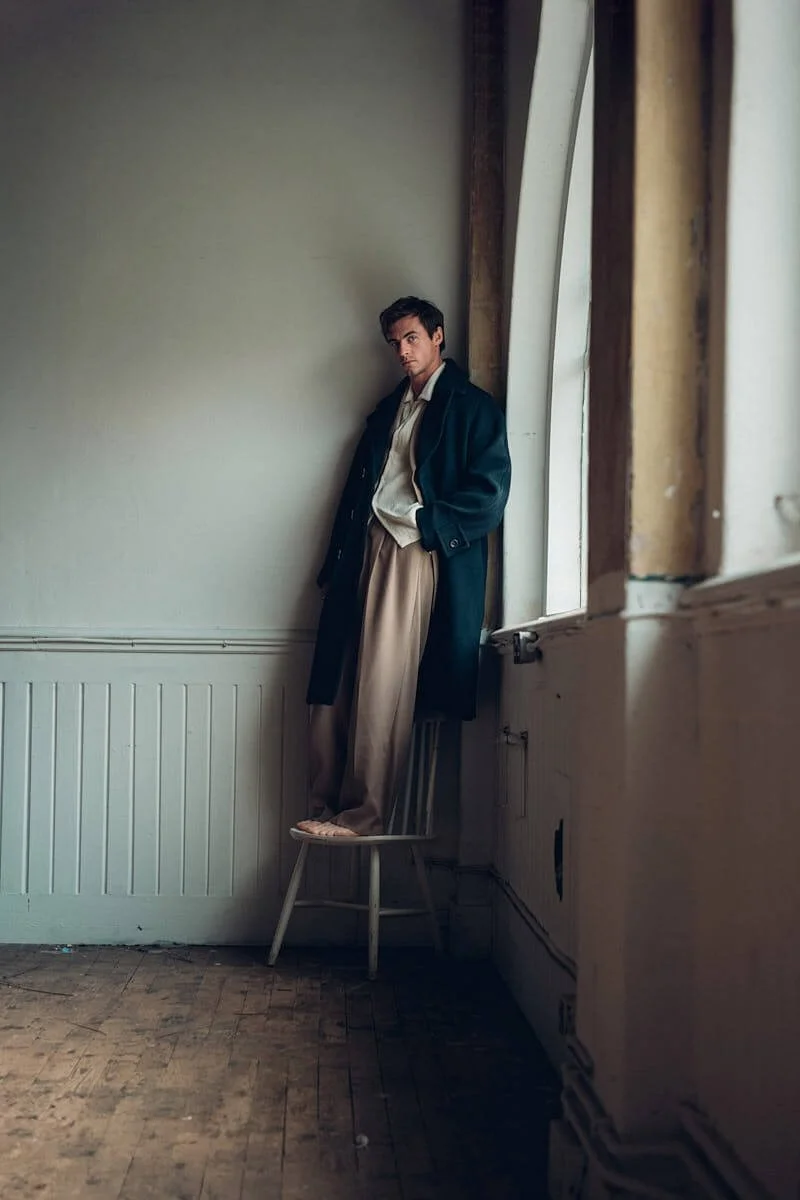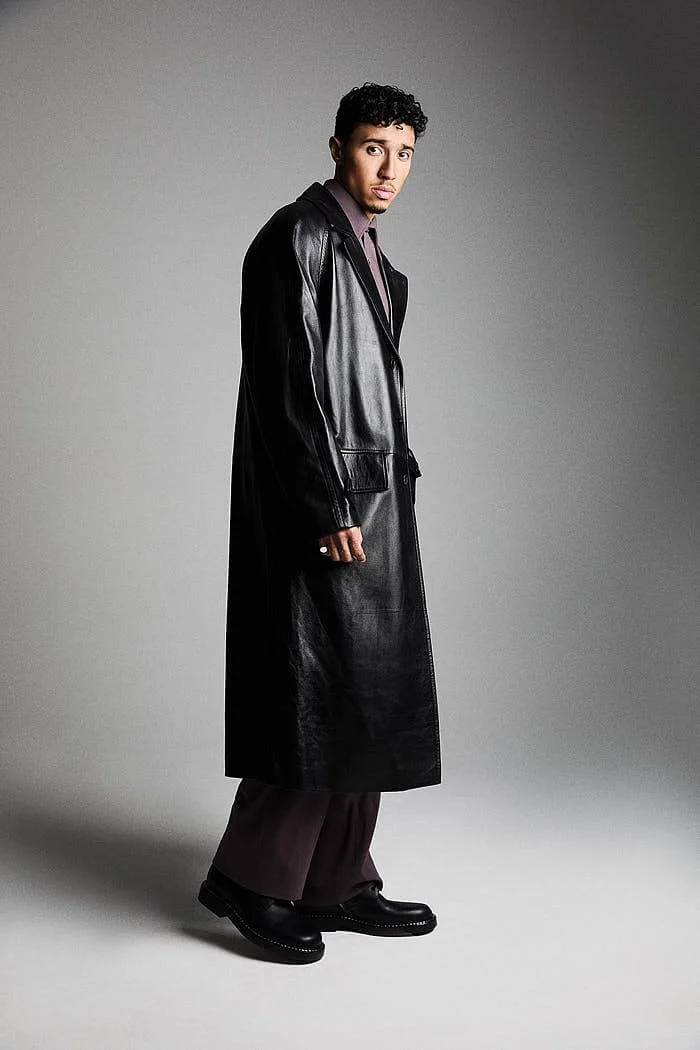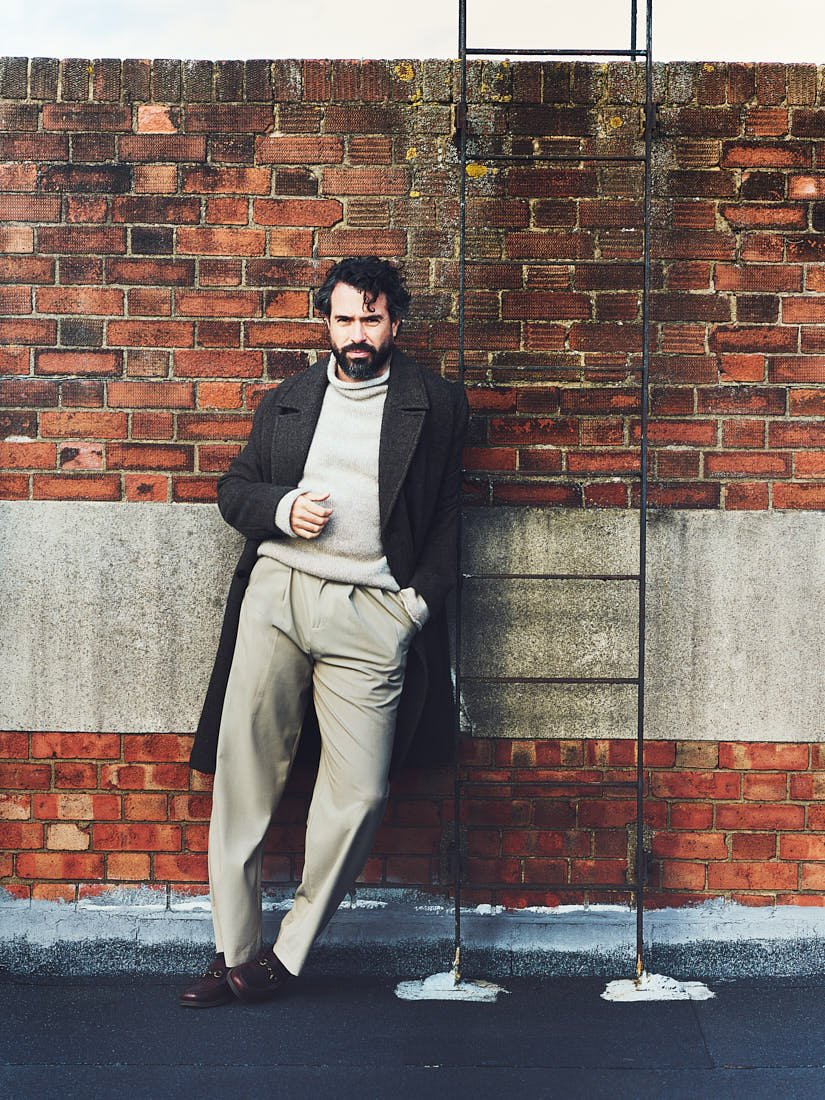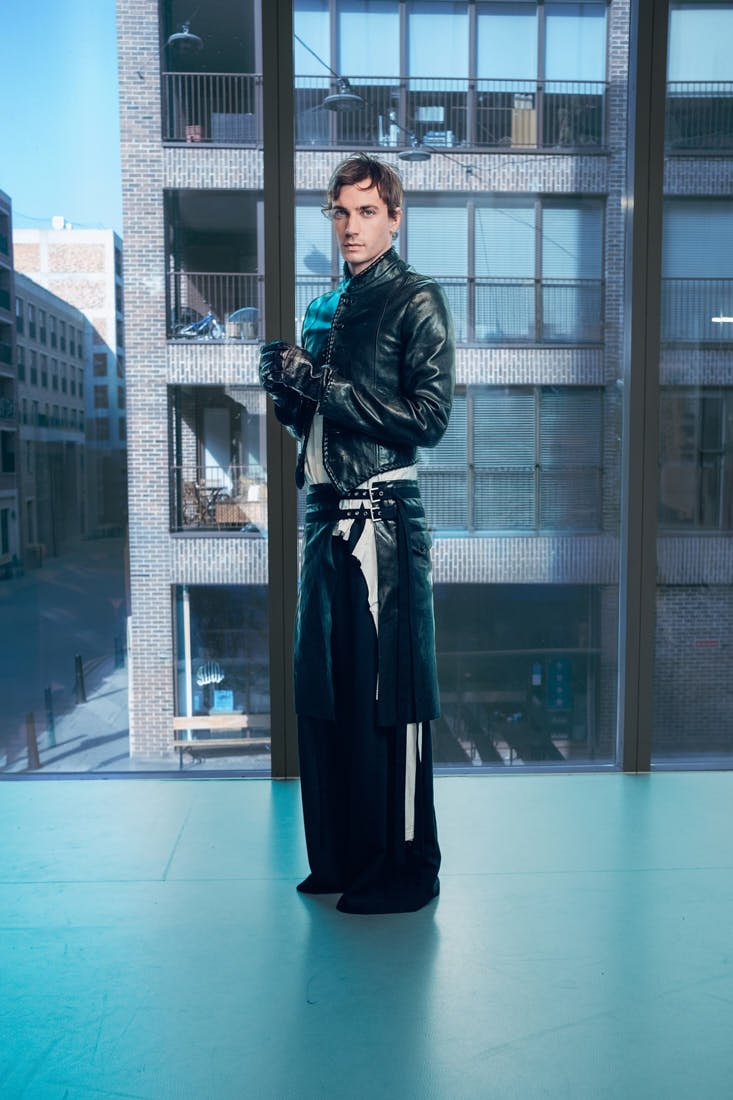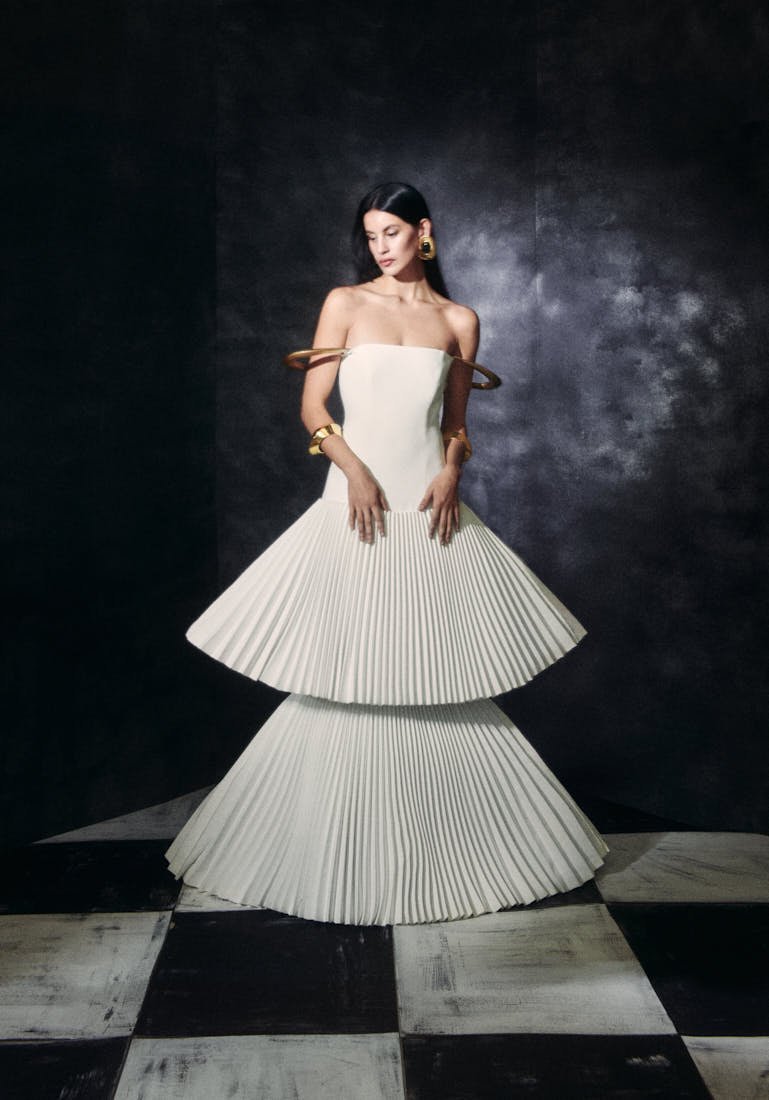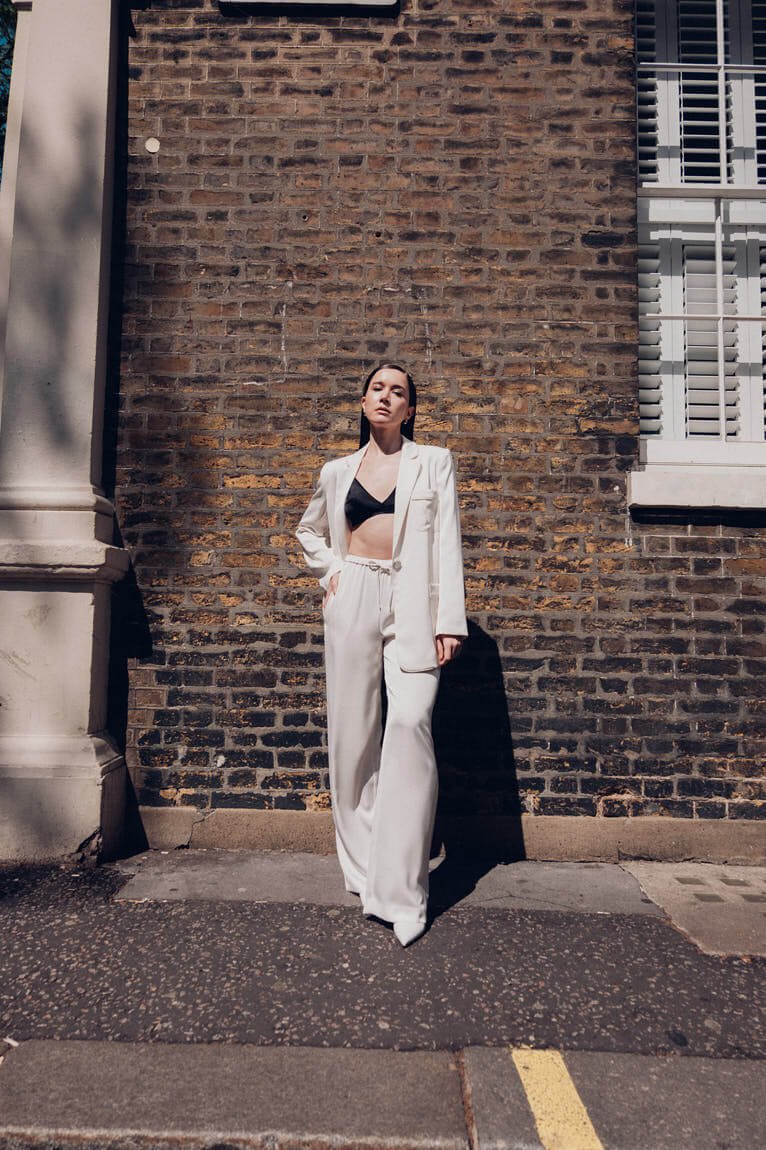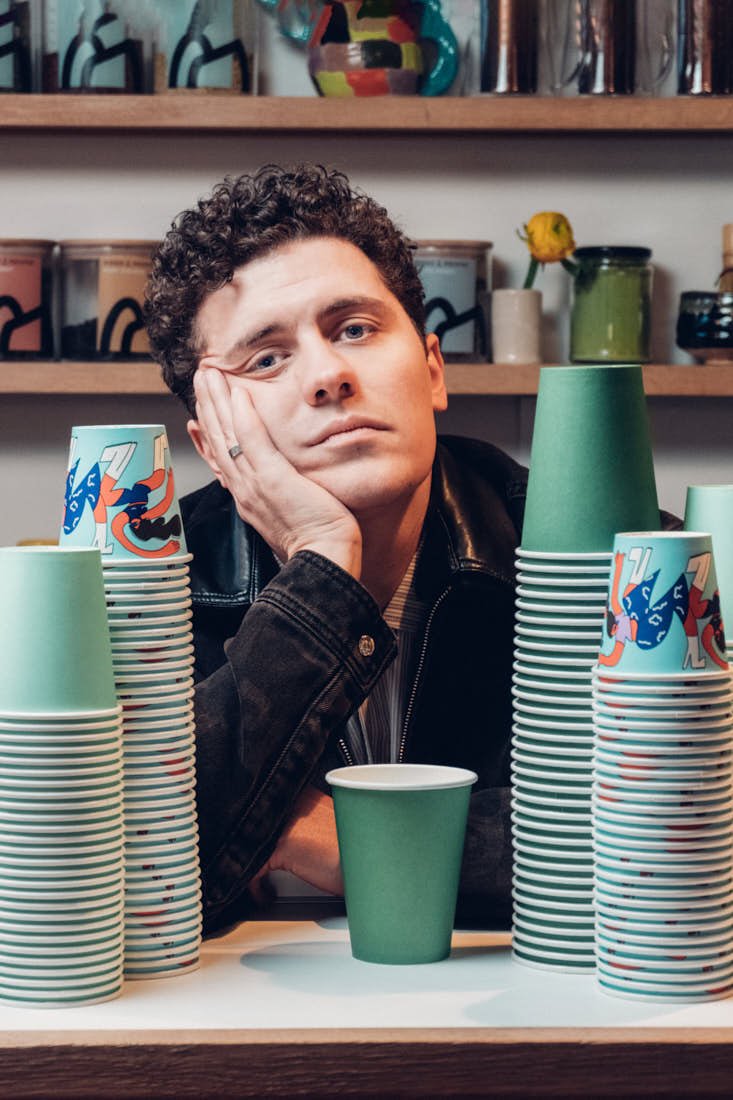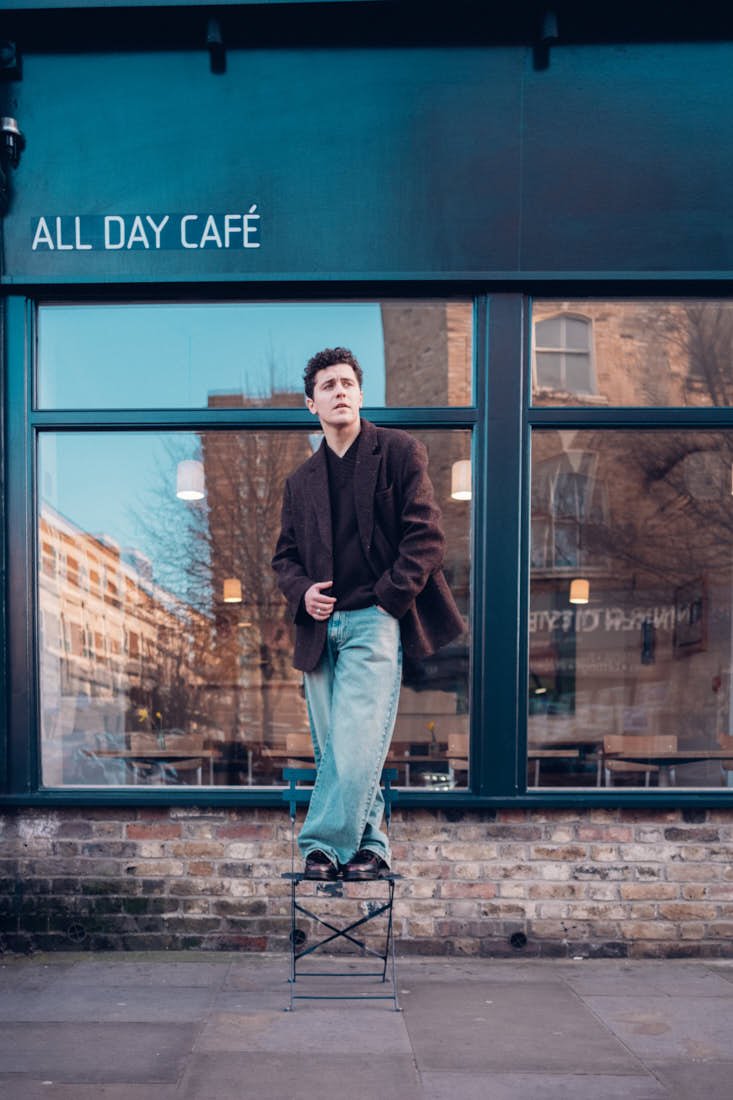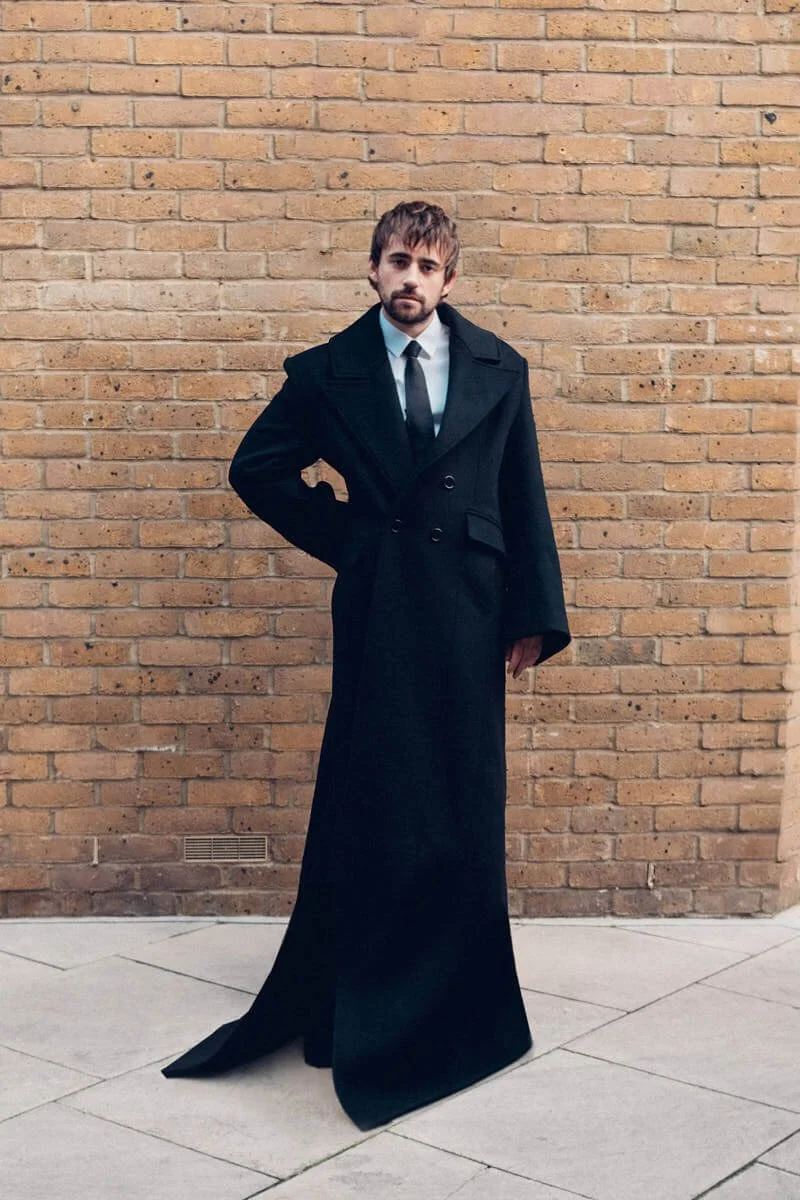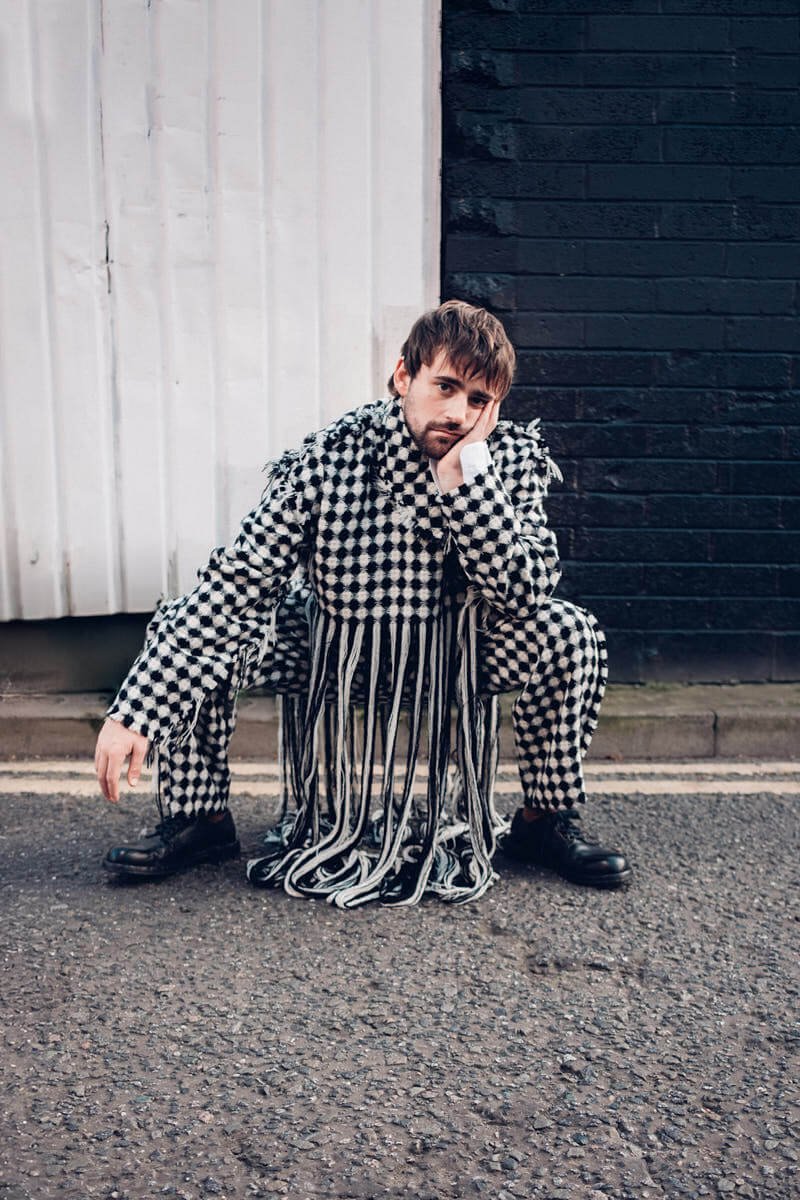BEN RADCLIFFE
—Rebellion, Reflection, and the Roles in Between
interview + written ALBAN E. SMAJLI
Ben Radcliffe drifts through interviews with the ease of someone leafing through a second-hand bookstore, picking up fragments and letting them fall. He talks about coffee as a cosmic mistake, acting as weather gone wrong, rebellion as simply switching the screen off.
Ben Radcliffe wears VALENTINO
His filmography holds soldiers, pickpockets, scandal shadows, lovers of revolutions — a drawer of misplaced identities. He remembers costumes that ignored the climate, cooling vests that worked like secret armor, rehearsed lines stripped of theatrics. What follows is Ben in his own rhythm — fragments, reflections, and the kind of unfinished lines that linger.
Ben Radcliffe wears a shirt and coat by SANDRO, a suit by THE FRANKIE SHOP, and a ring by TOM WOOD
Ben Radcliffe wears a shirt and coat by SANDRO, a suit by THE FRANKIE SHOP, sunglasses by PALOCERAS, and a ring by TOM WOOD
Alban E. Smajli
When was the last time you went missing on purpose, switched everything off, and didn’t tell anyone where you were going? And what waited for you on the other side?
Ben Radcliffe
I do this a lot. I think sport and exercise are a great reason to switch off and escape..
There’s something almost illegal about being offline today, especially in your world. What’s your version of rebellion?
I don’t see it that way. I think it’s very easy to switch off, especially social media. If I catch myself in a long scroll session, I will usually make up for it by doing something productive. And my favourite rebellion? Les Misérables. Or Hamilton. Big fan of revolutions you can sing along to.
You’re sitting at a café and there´s no script, no screen, or role to play. Just you and a black coffee. Where does your mind wander?
Wondering, “Why did I order a black coffee?”
What part of fashion feels like acting and what part of acting feels like dressing up?
If I wear something a bit out there, then it feels a bit like acting. Which is good because it’s fun to try something new. But if you feel inauthentic, then it’s probably not the vibe.
Acting on set mostly means wearing clothes wildly inappropriate for the weather. Five layers of sheepskin in the middle of summer, or just a thin shirt and trousers when it’s -2°C and raining (like one particular scene in Fackham Hall). On Masters of the Air we actually wore cooling vests inside the planes. The costumes were very accurate, designed for -40°C at 30,000 feet, but of course we were inside a sound stage. Without the vest pumping cold water around your body, you’d basically cook.
Ben Radcliffe wears a full look by TOD’S, shoes and a bag by TOD’S, and a ring by TOM WOOD
behind the scene
Ben wears a full look by TOD’S, and sunglasses by PALOCERAS
You’ve played a pickpocket, a soldier, a scandal shadow, who are you when the cameras stop rolling and there’s just your reflection in a train window?
All of the above.
You lead in Fackham Hall. Let’s say they also let you rewrite the ending, everyone waiting for you to decide what happens next. How does it all fall apart or come together?
It all comes together very nicely. I think you should watch and find out. If I was in the writers’ room, I would sit in the corner and let the geniuses continue their good work.
Which three films do you always come back to, without knowing exactly why?
I’m really drawn to coming-of-age movies. Billy Elliot and The Way Way Back are some favourites that I can watch over and over.
When social media gets overwhelming and the silence starts to feel sharp, do you ever retreat into something paper — a book, a magazine, anything that just lets you disappear for a while?
I’ve always been a very outdoorsy type, so I never used to be a big reader. Although I’ve definitely been getting into it more in my 20s. I listen to a lot of audiobooks and podcasts, that way I can enjoy them on the move.
What’s your weirdest ritual on set?
I don’t really have any strange rituals, but I’ve witnessed many. I’ve listened to some outrageous warm-ups from nearby trailers and many actors doing interesting things to get into character. I’m pretty basic. I make sure I know all my lines and then I say them.
Are there parts of your career so far that feel like dreams you haven’t quite woken up from?
Working alongside John Travolta. He is a personal hero of mine and someone I grew up admiring. Performing alongside him felt very surreal.
What’s something you’ve never said in an interview but kind of hope someone would ask you one day?
“Ben, would you like me to introduce you to Sabrina Carpenter? Here is her number…
Ben wears a vest by GEORDIE CAMPBELL, trousers by DANIEL W. FLETCHER, a jacket by DSQUARED2, and shoes by ADIDAS
Ben Radcliffe wears a full look by DOLCE & GABBANA and shoes by G.H. BASS
art direction + seen ANTONIO EUGENIO
photo assistant FENN REEVES
styled KATIE DULIEU
assisted MARTHA RALPH-HARDING & CECILIA COLLINS
grooming CHARLIE CULLEN at Forward Artists using 111SKIN
film SOFIA IVANOVA
talent BEN RADCLIFFE
thanks Caroline Fergusson and Grace Yeoman at Pinnacle PR
copyright LE MILE Magazine / Antonio Eugenio 2025



